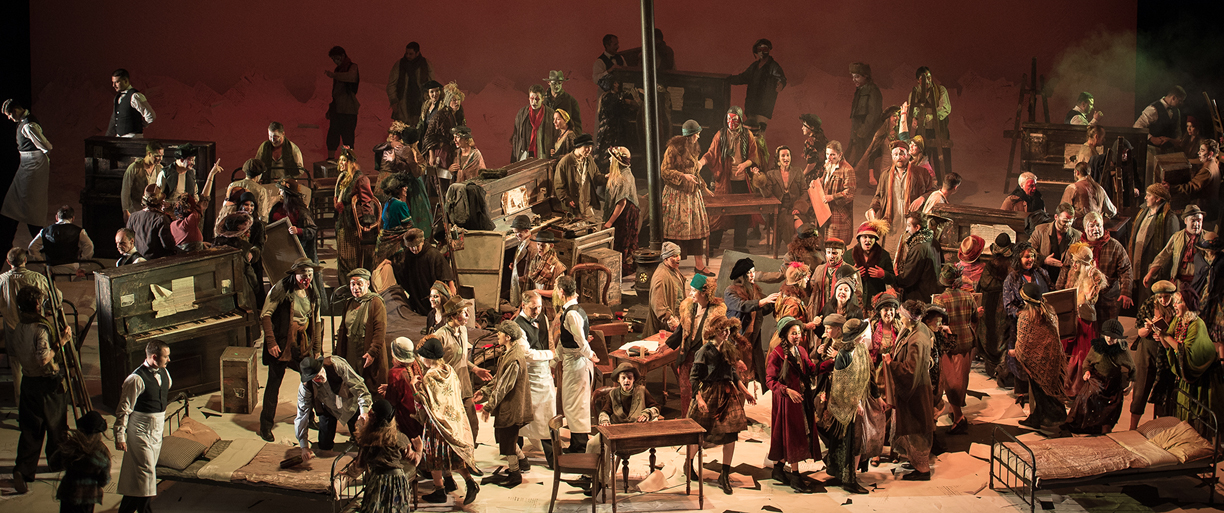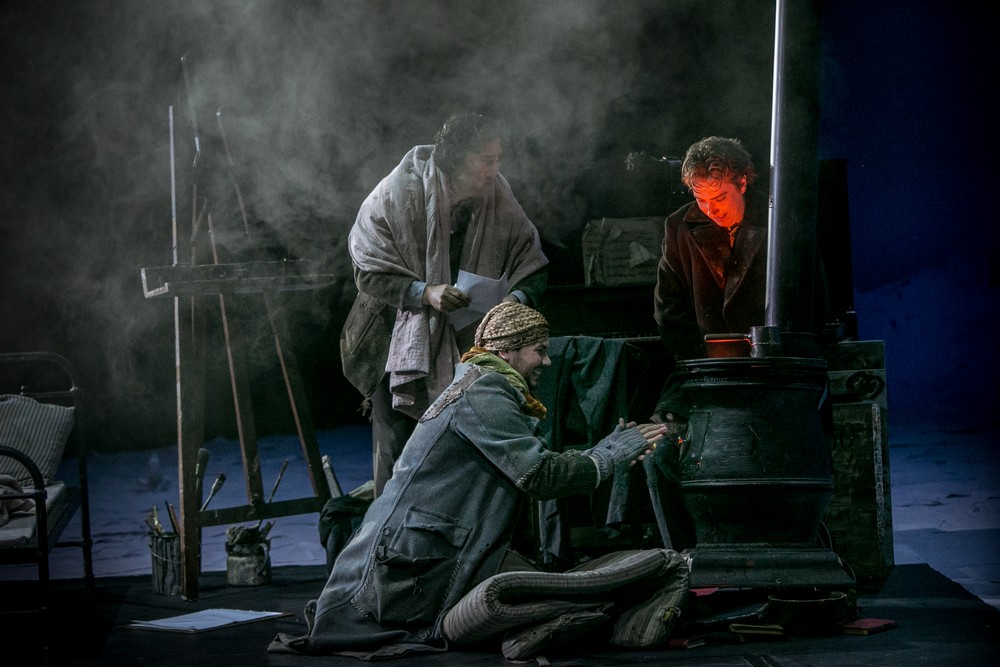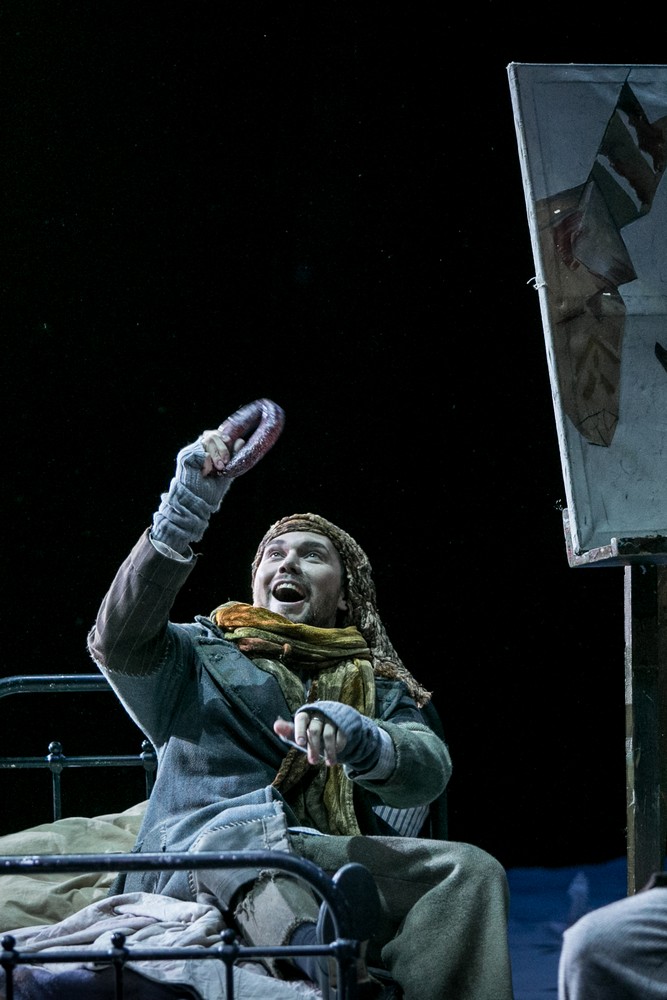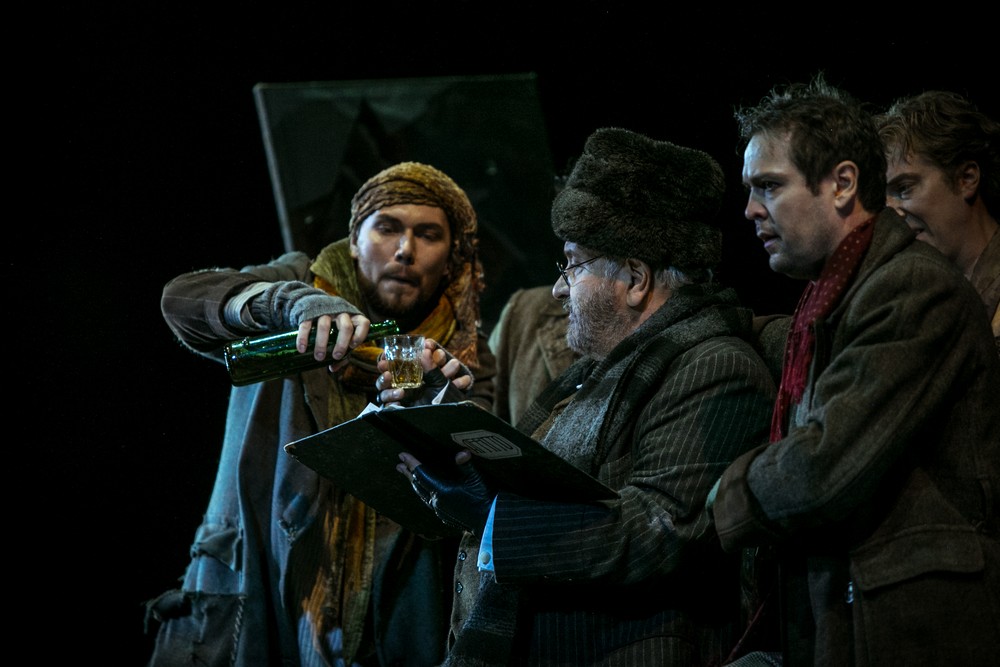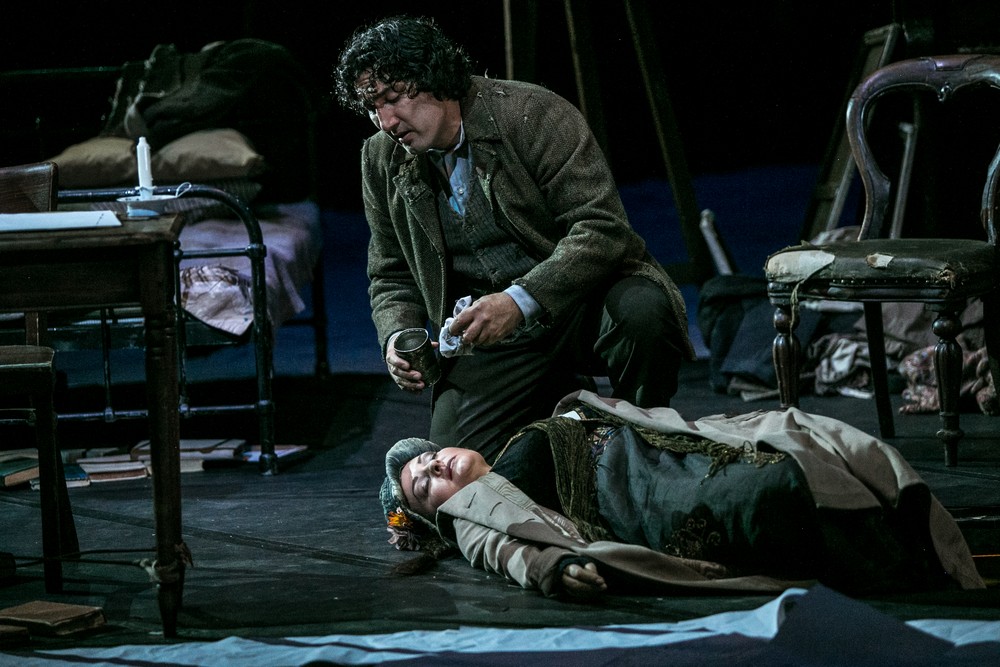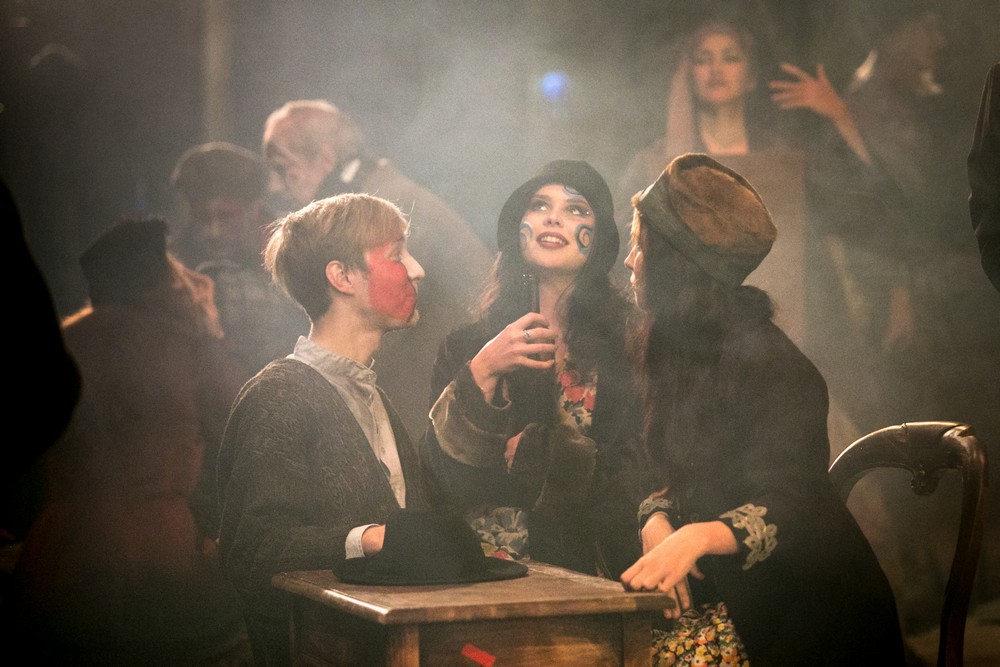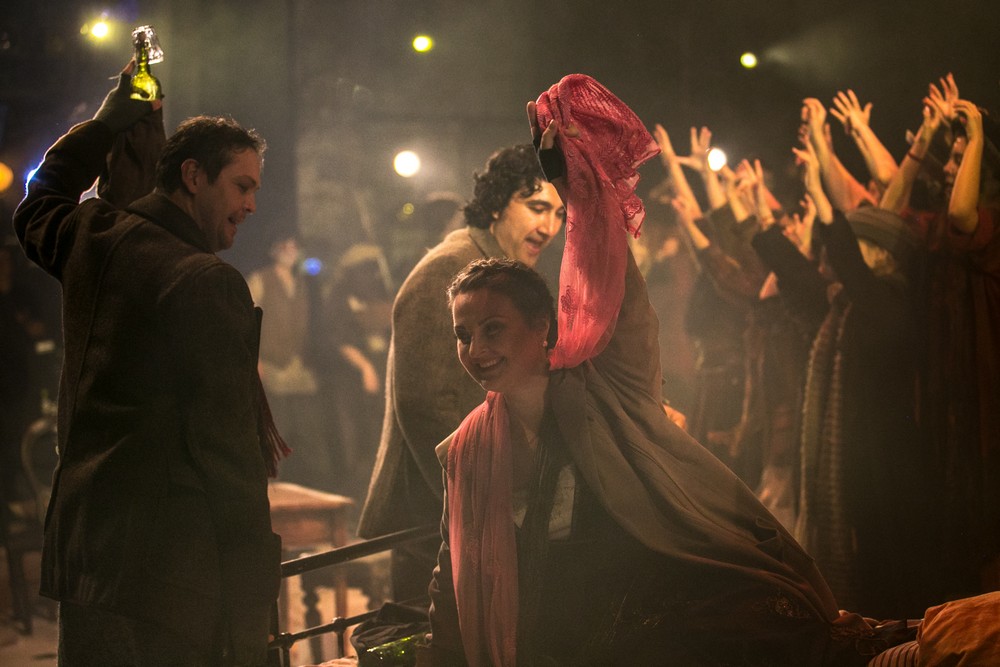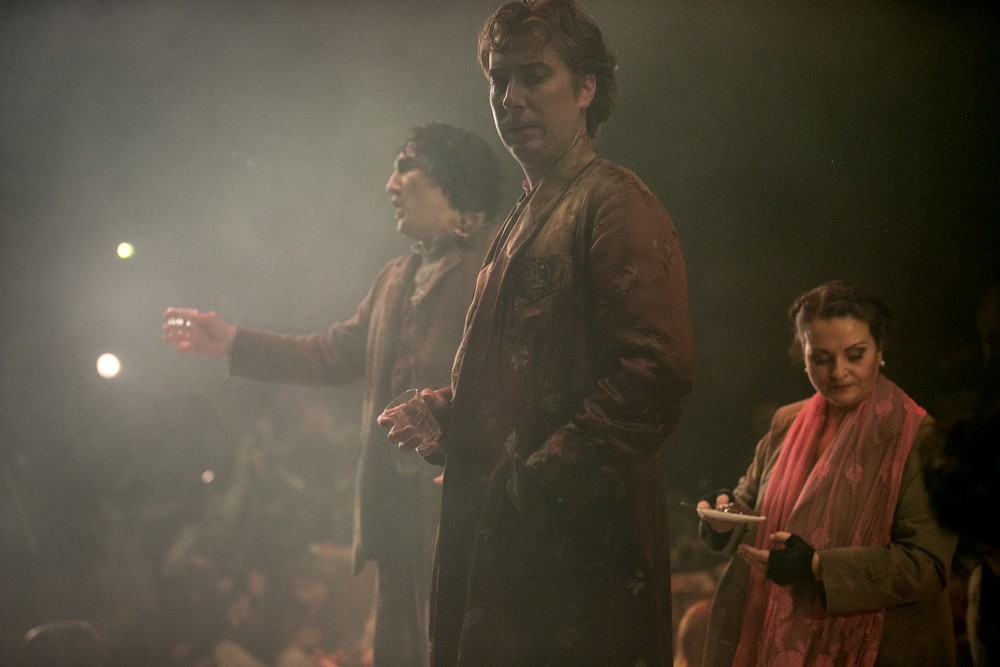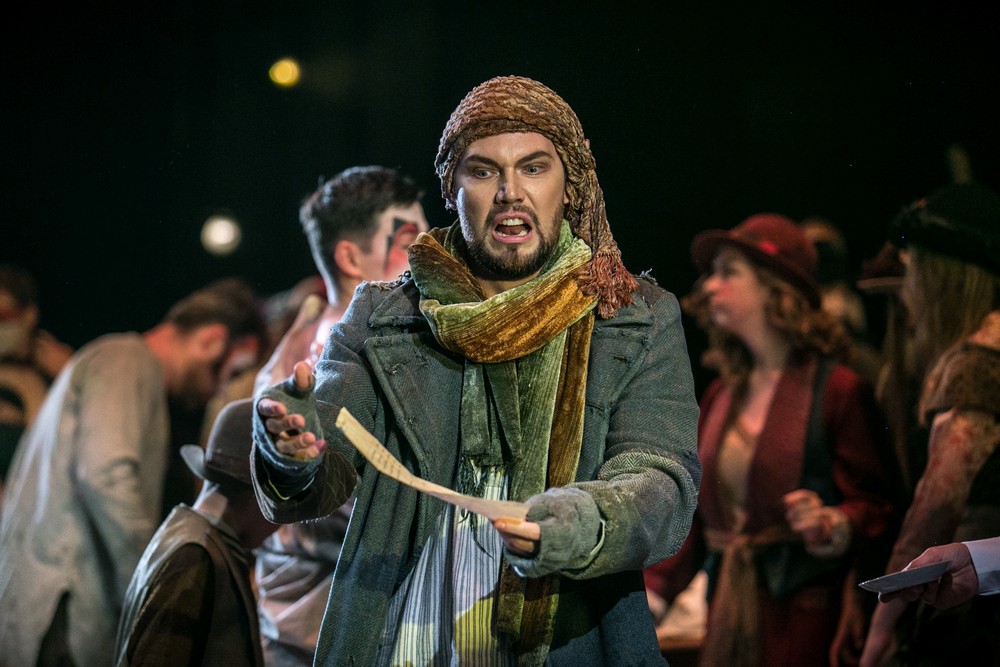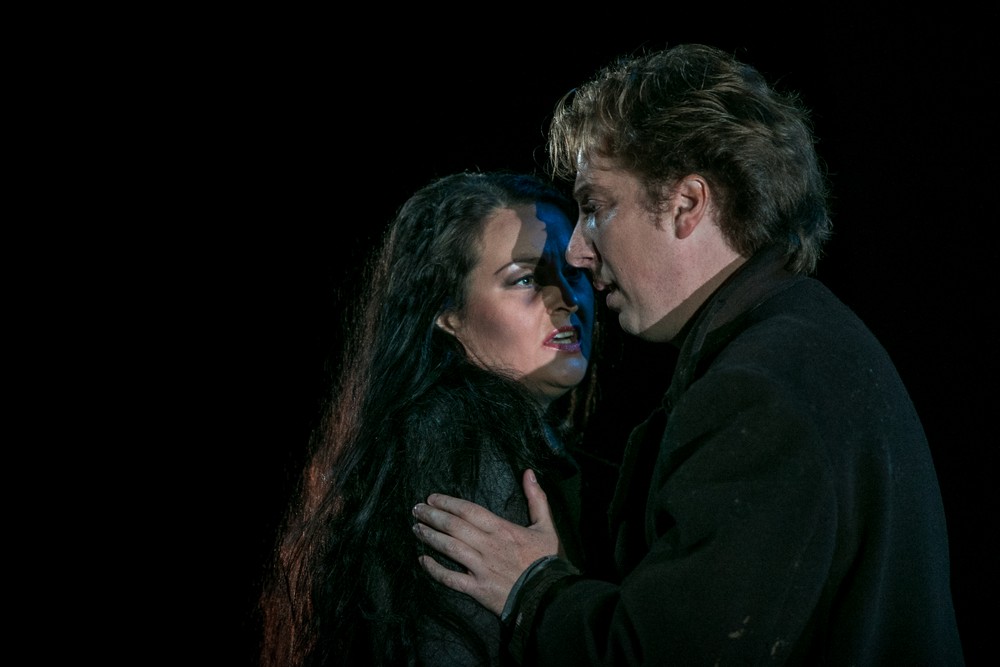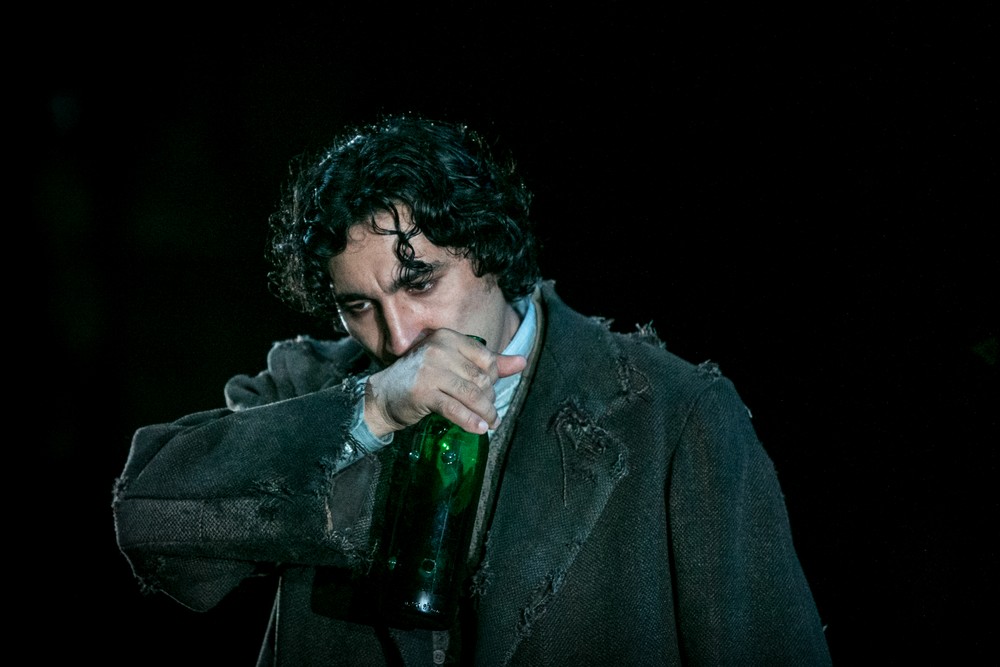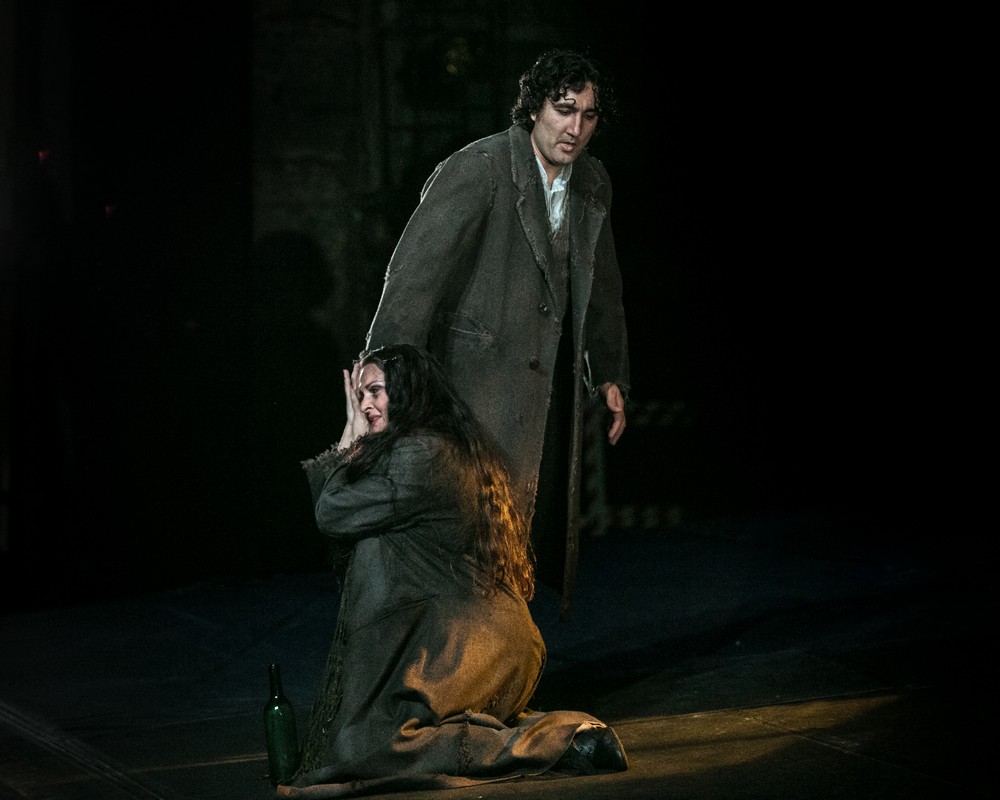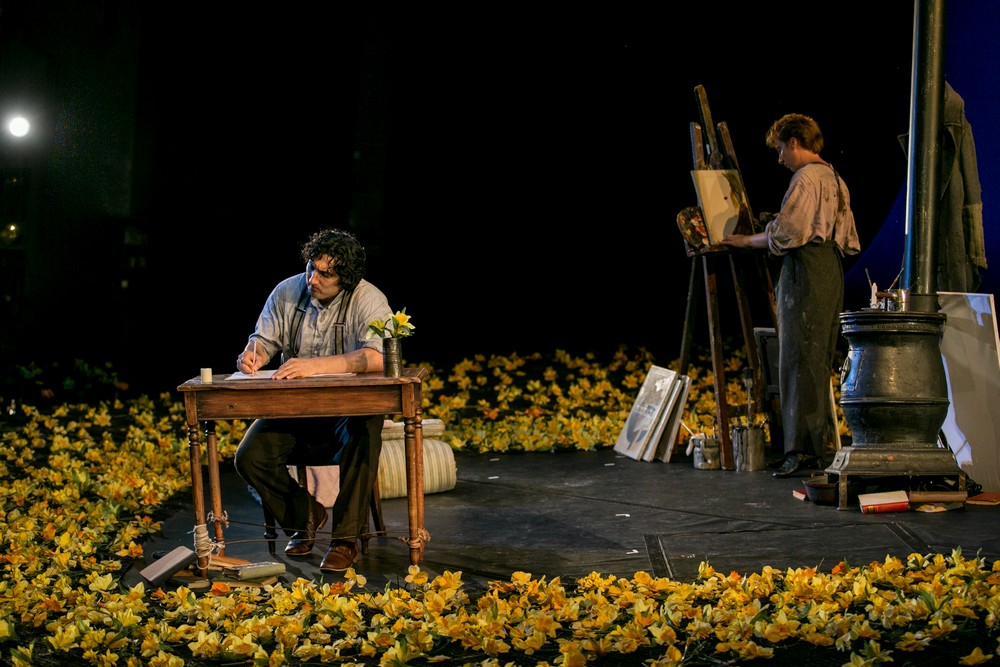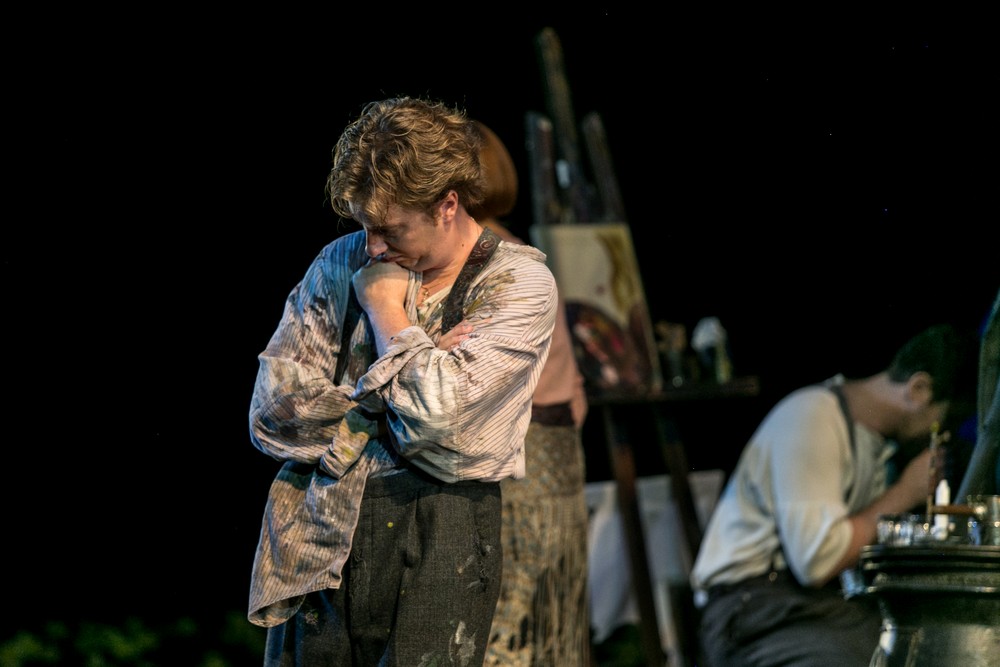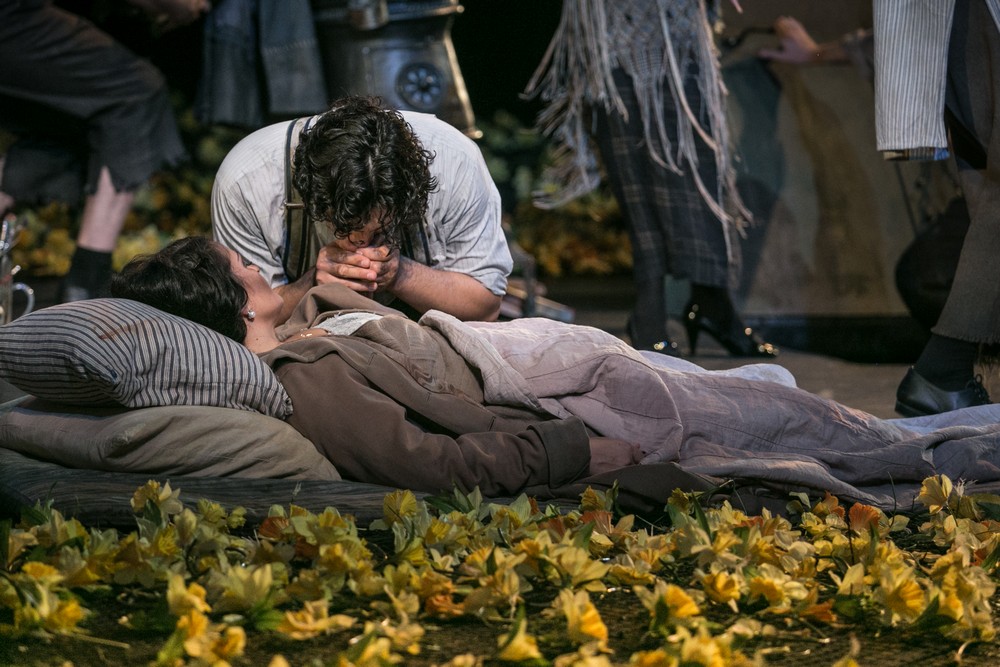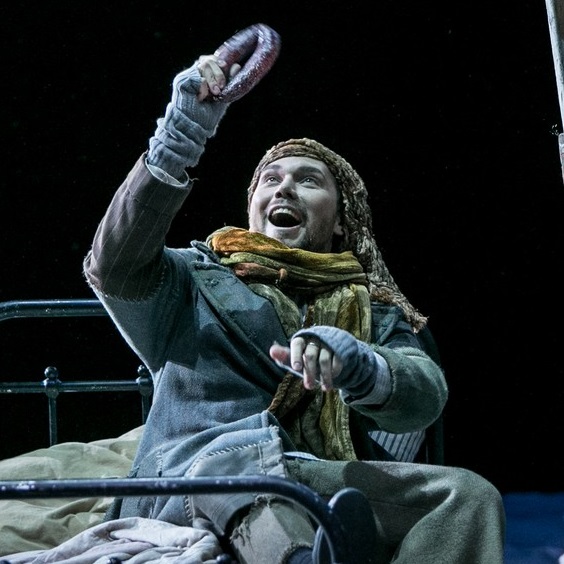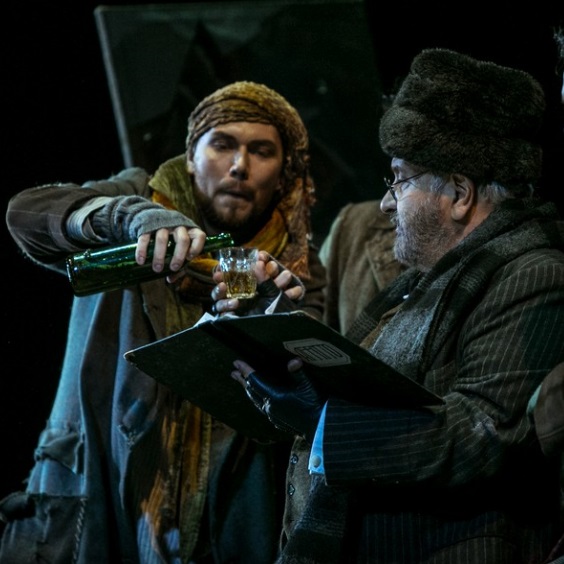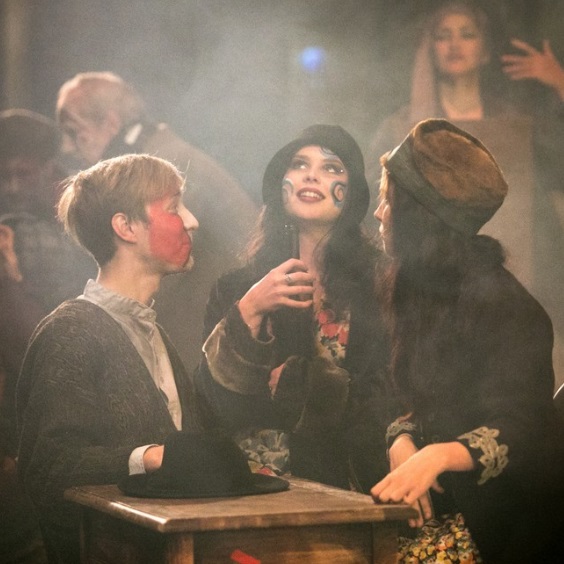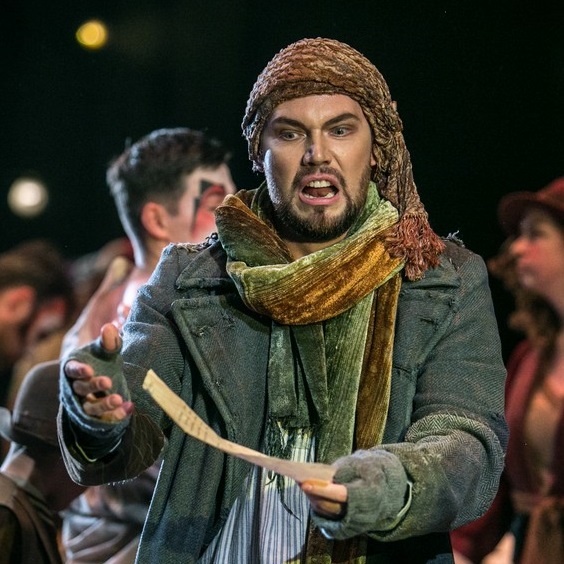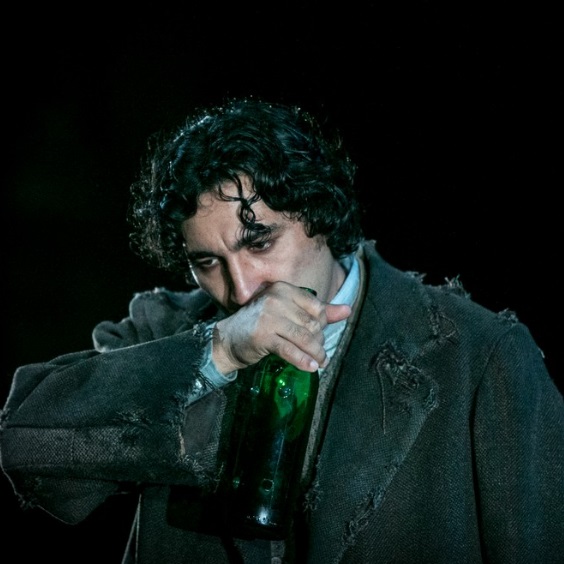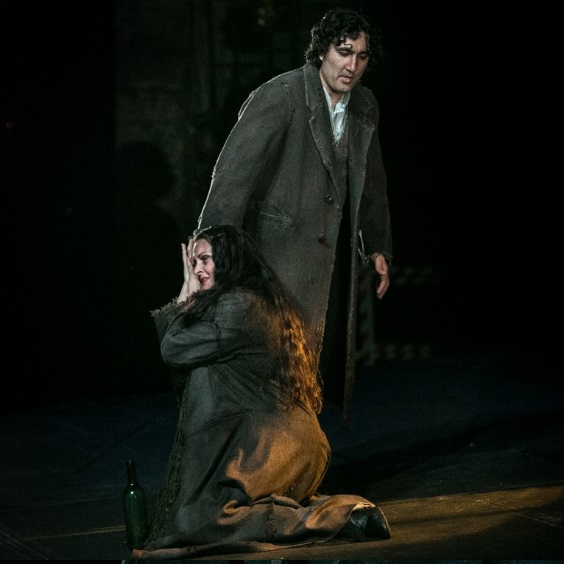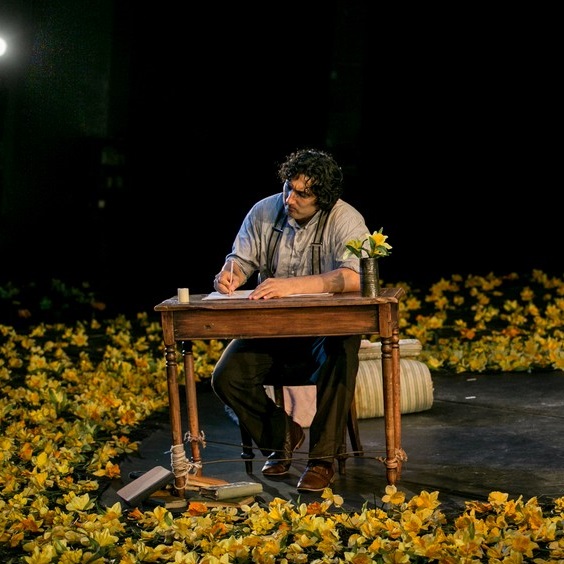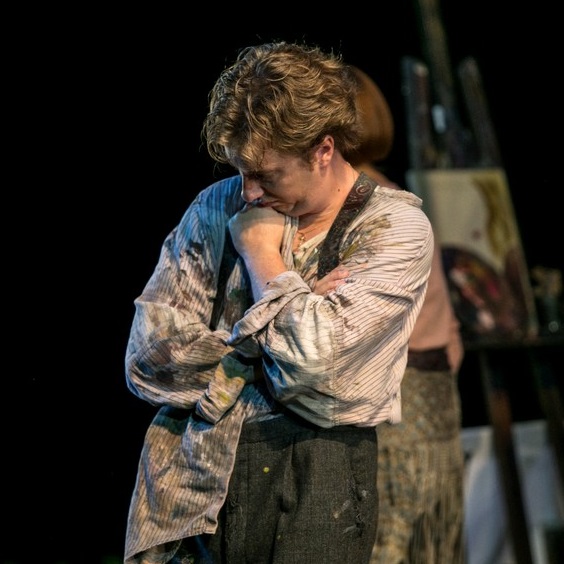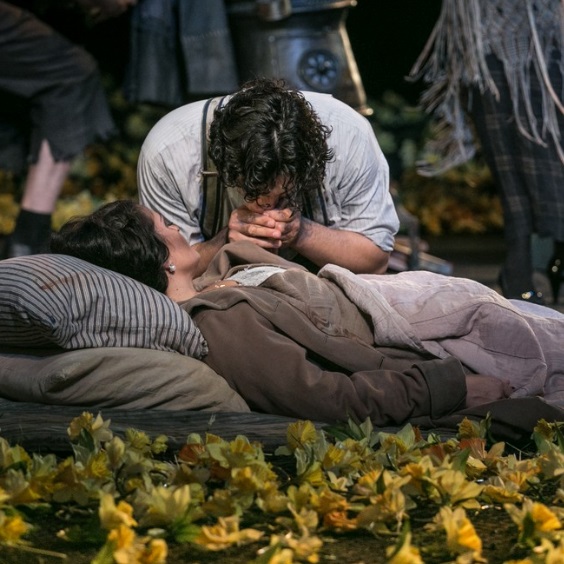La Bohème
opera in four acts
music by Giacomo Puccini
 performed in Italian (with Russian surtitles)
performed in Italian (with Russian surtitles)
Cast
Premiere of the production at the Mikhailovsky Theatre: 8 September 2016
The opera’s action takes place in Paris during the Belle Époque. Against a backdrop of flourishing art and social ideas, a poet, artist, musician and philosopher try to find their place in the world. Just like in every era of history, their source of inspiration is love. However, even the loftiest notions require worldly goods, and sometimes the muses only give their favour at the expense of great sacrifice. The direction by Canada’s Robert Carsen only highlights the dramatic quality of Giacomo Puccini’s music.
A garret in the Latin Quarter of Paris. Rodolfo and Marcello, a writer and a painter, are trying to work but in vain. They are starving and freezing in their garret, but they never lose their sense of humour. In order to keep warm, they burn a Rodolfo’s manuscript. Colline, a philosopher, enters. He is shivering.
Schaunard, a musician, arrives with food, firewood, wine, cigars, and money. The friends cheer up. The landlord Benoît comes to collect the overdue rent, but the four Bohemians skilfully avoid paying him. Marcello, Colline, and Schaunard leave for Café Momus, and Rodolfo promises to join them in a while, after he finishes a newspaper article.
Shy knock on the door is heard. It is Mimì. She lives nearby and has come to ask for some matches; her candle has blown out. Rodolfo is enchanted with the girl. Mimì thanks Rodolfo and leaves, but returns a few seconds later, saying she has lost her key. Mimì tells Rodolfo of her decent and lonely lifestyle; her story moves Rodolfo deeply. They confess their love for each other. On hearing their friends’ voices, they decide to go off and join the others at the café.
Act II
The Latin Quarter. The group is together amidst a huge crowd that has gathered on Christmas Eve. As the men and Mimì dine at the café, Musetta, formerly Marcello’s sweetheart, arrives with her new admirer, rich Alcindoro. Musetta has left Marcello as she has had enough of the Bohemian lifestyle, but she is still in love with him. She tries to reclaim Marcello’s attention, but he does not seem to notice her, and Musetta is burning with anger. To get rid of Alcindoro, Musetta invents a motive to send him off and hugs Marcello. A waiter brings the bill. Schaunard finds out that there is no money left. Musetta finds the solution: all the charges are put on Alcindoro’s bill.
Act III
In front of an inn on the outskirts of Paris. Early morning. Cheerful voices and Musetta’s laugh are heard from the inside of the inn. Mimì has come to see Marcello and tell him of Rodolfo’s jealousy that makes her life unbearable. She coughs all the time. On seeing Rodolfo, she hides and overhears Rodolfo complaining to Marcello about her coquettishness. Finally, Rodolfo, however, confesses that he fears she is slowly being consumed by a deadly illness. Rodolfo, in his poverty, can do little to help Mimì and hopes that his pretended unkindness will inspire her to seek a suitor who can support her. Mimì’s sobs and coughs reveal her presence. Rodolfo tries to console her, but now, when she knows his secret, she insists on parting. Mimì and Rodolfo have a moving farewell. The happiness of Marcello and Musetta has also come to an end. The couple quarrels fiercely: Marcello blames her for her coquettishness and they break up.
Act IV
The garret. Several months have passed. Rodolfo and Marcello are trying to work. They talk about their loved ones. Suddenly Musetta arrives; Mimì has also come, but she is too weak to get to the garret. The friends bring Mimì in. It is still cold in the garret. Musetta and Marcello leave to sell Musetta’s earrings in order to buy some food and invite a doctor. Left alone, Mimì and Rodolfo recall their first encounter. The Bohemian company returns with a muff to warm Mimì’s hands and some medicine. Mimì takes the muff and falls asleep. Rodolfo curtains the window not to disturb Mimì, but his sweetheart is already dead.
Musical Director of the production: Mikhail Tatarnikov
Directed by Robert Carsen
Designed by Michael Levine
Lighting: Jean Kalman
Revival Director: Frans Willem de Haas
Choreography: Michael Popper
Assistant to Revival Director: Yulia Prokhorova
Second Assistant to Revival Director: Vyacheslav Kalyuzhny
Assistant Conductor: Valery Kiryanov
Conductor/Coach: Christian Deliso
Principal Pianist: Marc Vayner
Pianist & Vocal Coach: Natalia Dudik
Pianists: Irina Dayneko, Maria Mikirtumova
Artistic Director and Principal Conductor of the Mikhailovsky Chorus: Vladimir Stolpovskikh
Chorus Masters: Alexey Dmitriev, Sergey Tsyplenkov
Principal Chorus Master of the Children’s Choir of St Petersburg TV and Radio: Igor Gribkov
Consultant in the Italian language: Daria Mitrofanova
Surtitles: Margarita Kunitsyna-Tankevich
Stage Manager: Olga Kokh
Assistant to Stage Manager: Elena Piskunova
Surtitles are transmitted by Elena Piskunova
The original production of La Bohème is a creation of Opera Vlaanderen, Belgium

